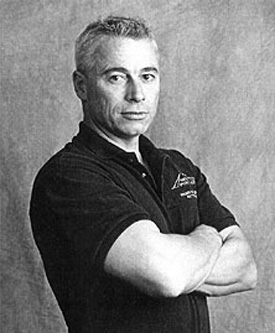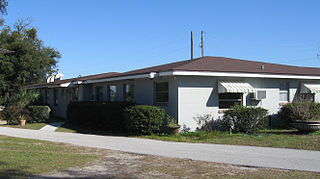James Black was an American knifemaker best known for his improvements to the Bowie knife designed by Jim Bowie.

Buck Knives is an American knife manufacturer founded in Mountain Home, Idaho and now located in Post Falls, Idaho. The company has a long history through five generations of the Buck family from 1902 to the present day. Buck Knives primarily manufactures sport and field knives and is credited with inventing the "folding hunting knife" and popularizing it to such a degree that the term "buck knife" has become synonymous with folding lockback knives, including those made by other manufacturers.

Ernest R. Emerson is an American custom knifemaker, martial artist, and edged-weapons expert. Originally an engineer and machinist in the aerospace industry, Emerson became a knifemaker by producing knives for a martial arts class and making art knives early in his knifemaking career. In the 1980s he became better known for his combat knives and popularizing a style of knife known as the Tactical-folder.

Christopher Stanley Reeve is a South African-American knife maker, recognized as one of the most influential people in knife making history. Reeve founded Chris Reeve Knives (CRK) in 1984. In 2014, Reeve retired and was inducted into the Blade Magazine Hall of Fame in 2015.
Robert Waldorf Loveless, a.k.a. Bob Loveless or RW Loveless, was an American knife maker who designed and popularized the hollowground drop point blade and the use of full tapered tangs and screw-type handle scale fasteners within the art of knifemaking. He is cited by other knifemakers and collectors as one of the most innovative custom knife makers in the world.
Blade is a consumer magazine about knife collecting. The magazine is based in Appleton, Wisconsin.

Ken Onion is an American custom knifemaker based in Kaneohe, Hawaii, United States who invented the "SpeedSafe" assisted opening mechanism for Kershaw Knives. Ken Onion was the Premier Knife Designer for Kershaw Knives.

The Linerlock is a locking mechanism for folding pocket knives. A Linerlock is a folding knife with a side-spring lock that can be opened and closed with one hand without repositioning the knife in the hand. The lock is self-adjusting for wear. The modern Linerlock traces its lineage to the late 19th century, but in the 1980s the design was improved by American custom knifemaker Michael Walker.

Randall Made Knives, usually referred to as Randall, is an American custom handcrafted knife manufacturer founded by Walter Doane "Bo" Randall, Jr. in the U.S. The knife making shop and showroom is located in Orlando, Florida. Randall began making knives as a hobby in 1937. His son and grandson continue the family trade along with 20 craftsmen producing about 8,000 knives per year out of a shop on South Orange Blossom Trail.
Imperial Schrade Corp. was an American knife manufacturer of hunting knives, pocketknives, utility knives, and bayonets during the 20th and early 21st centuries. The consolidation of five forerunner companies, including its namesakes, the Imperial Knife Company, founded 1916, and the Schrade Cutlery Company, founded in 1904, Imperial Schrade manufactured its products in the United States and Ireland and sold through hardware stores, department stores, and on military bases. The original company's fortunes declined and in 2004 it entered into bankruptcy where all equipment and intellectual property was sold off to reimburse creditors. The name and intellectual property was bought by Taylor Brands and used for marketing purposes.

SHARPFINGER® is a brand of knife modeled after the Schrade 152 OT. The SHARPFINGER trademark is designated to a variety of knives in this design by a number of makers.
William Wales Scagel was an American knifemaker whose style had a profound impact on the cutlery trade, influencing it for over 100 years.
The American Bladesmith Society, or ABS, is a non-profit organization composed of knifemakers whose primary function is to promote the techniques of forging steel blades. The ABS was founded by knifemaker William F. Moran, who came up with the concept in 1972 when he was Chairman of the Knifemakers' Guild; the following year, he introduced Damascus steel blades at an annual show. In 1976, he incorporated the organization, and it received non-profit status in 1985.
James Buel Lile, known as Jimmy Lile and "The Arkansas Knifesmith", was an American knifemaker from Russellville in Pope County, Arkansas, who made the Rambo Knife for the films First Blood and Rambo: First Blood Part II. As a knifemaker Lile served as a president of the Knifemakers' Guild and on the board of directors of the American Bladesmith Society.
William Francis Moran Jr., also known as Bill Moran, was a pioneering American knifemaker who founded the American Bladesmith Society and reintroduced the process of making pattern welded steel to modern knife making. Moran's knives were sought after by celebrities and heads-of-state. The "William F. Moran School of Bladesmithing" bears his name and in addition to founding the ABS, he was a Blade Magazine Hall of Fame Member and a President of the Knifemakers' Guild.
Bo Randall was an American knifemaker who founded Randall Made Knives in Orlando, Florida.

Michael Leon Walker is an American custom knifemaker and sculptor based in Taos, New Mexico. Walker is the inventor of more than 20 different knife mechanisms including the Walker Linerlock for which he secured a trademark in 1980.
Jody Samson was a knifemaker and bladesmith from Burbank, California, who designed butterfly knives for Benchmade and the swords used in movies, including Conan the Barbarian, Conan the Destroyer, First Knight, The Mask of Zorro, Blade, Blind Fury, Batman & Robin, Batman Forever, and Streets of Fire.
Walter Wells "Blackie" Collins was an American knife maker who designed and popularized the assisted opening mechanism and various automatic knife designs within the art of knifemaking. He is cited by other knifemakers and collectors as one of the most innovative knife designers in the world and was an author and the founder of what became Blade Magazine. Collins died July 20, 2011 in a motorcycle accident near North, South Carolina.
Jerry Fisk is an American bladesmith based in Nashville, Arkansas. Fisk was named a National Living Treasure in 1998 by the University of North Carolina at Wilmington’s Museum of World Cultures.







